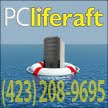Not necessarily. Sometimes even a smart company can overreact to a trend and produce software that is a step backwards. I believe that Windows 8 falls into that category, both philosophically and pragmatically. In trying to jump on the mobile computing bandwagon, Microsoft has thrown away most of the good ideas it spent the last thirty years developing.
The biggest idea behind Windows 8 is that a computer should operate like a cell phone, so Microsoft has done away with things that have existed for decades (for example, the "x" to close an app) and the Start Menu (which was a darn handy way to start things you didn't use all the time.) Instead, you've got big ugly boxes you can touch (or more likely click, because almost no one has a touchscreen on their desktop computer)--a whole screen of them, because without the hierarchy of the Start Menu, there's other place to put them. They aren't organized; they are simply displayed, all of them.
It's certainly ugly and confusing and unsettling when you try to use Windows 8 for the first time. But here's what amazes me: Microsoft has abandoned a base of millions of computer users for an imaginary market of smartphone and tablet users that doesn't exist! How many people do you know who use a Windows-based phone or tablet? Do you know one person? Microsoft is changing everything about how their operating system works for devices they hope to sell some day in the future.
We can argue about how important mobile computing is, and how dominant it may become. Personally, although I use my phone and my employer-issued iPad on a daily basis, when I need to get work done I sit down in front of a real computer, and that's not going to change anytime soon. Sorry, but there's a reason why we're still using a mouse and a keyboard and why we can click to find a file faster than we can wave our arms about or swipe with a finger or try to give directions to the computer orally.
I'm typing this while I look at a 24 inch LCD screen, and many of us have double that amount of real estate on our desks now. Why should the core system we use be defined by a four inch cell phone screen? Mobile devices are different than desktop devices, and there's no reason they need to be the same. Make mobile devices better, but don't cripple our desktops!
What did we need from a new Microsoft operating system? We needed something reliable (no crashes) that was secure (fewer chances for malware to steal from us). Instead, Microsoft spent all their research dollars adding a touch interface that nobody needs on their desk. In dumbing down the interface, they made it less logical and consequently more confusing. Windows 8 is a weird mix of old and new in which nobody is going to be at home.
I didn't like the Ribbon when Microsoft introduced it years ago in MS Office, and still don't, because so often it makes no sense and has no logical order. I didn't like it when Microsoft changed the START button to a blob without a name, because that made it more confusing. Windows 8 is a giant leap into that void of confusion.
Welcome to Windows 8, the OS that people are going to hate.


Classic Shell (http://www.classicshell.net/) is a freeware app that restores the beloved START menu to Windows 8. Take that, Microsoft! I've yet to meet anyone who honestly likes the Windows 8 experience on a non-touchscreen PC.
ReplyDelete